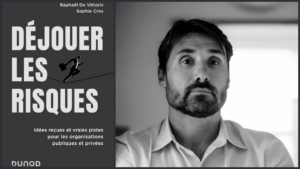Syria, Afghanistan, Libya, Lebanon, Irak, US-China and Algeria – Conversation with his Excellency Lakhdar Brahimi, Former Under-General Secretary of the United Nations

Interview publiée le 30 Novembre 2020
Centre Algérien de Diplomatie Economique : Hello sir, thank you so much for accepting this invitation, it is such an honor for me to have you at our first interview at the Algerian Center for Economic Diplomacy.
Mr. Lakhda Brahimi : Alright, thank you very much and I am pleased to be with you today.
CADE : Ambassador Lakhdar Brahimi, former special adviser to the secretary-general of the UN in January 2004, and the United Nations and Arab League Special Envoy to Syria until 2014. Ambassador You were born in conflict, have been living in conflict all your life, and started a professional career as a UN diplomat promoting peace over war in areas of conflict. What is the fine line between resolving the conflict and failing it ?
Mr. Lakhda Brahimi : That is a very difficult question because the kind of conflicts that we deal with today is seldom a conflict between two states. It is a conflict between multiple parties that starts inside one country where very often it spills out to affect other countries as well. George Mitchell, a former American senator who did successful work in the Northern Island, said something very interesting. He said, in situations like this it is 700 days of frustration and one day of satisfaction. So, when one deals with these situations the 700 days of frustration are guaranteed, you face up a lot of difficulties, unfortunately, that one day of satisfaction is not guaranteed, sometimes it happens sometimes it doesn’t. In my case, for example in Lebanon, we had less than 700 days of frustration and we did have our day of satisfaction. In Afghanistan, I did the first tour which was total -not failure- but we didn’t achieve anything from 1997 to 1999. Then, after 9/11 I was called back to Afghanistan, and we had a conference in Bonn which was very successful and then we went to Afghanistan and we started to implement the agreement we achieved in Bonn. I think we did everything we were required, but unfortunately, the war did not stop and it has gone on until now actually, I left in 2004, and the war is still going on 16 years later. So, there is a fine line between success and failure and the situations we deal with these days are extremely complicated. Success is rare really and total success is even rarer than that.
CADE : Do you think that the concept of conflict/war has changed over the decades ? Taking into account that you have witnessed enormous global conflicts, and in fact, you had a long career that included peacemaking efforts in Lebanon, South Africa, Haiti, Afghanistan, Iraq, and Syria.
Mr. Lakhder Brahimi : You know there is one saying, something we all say all the time especially this year which is the 75th anniversary of the creation of the United Nations. Everybody says that we had 75 years of peace but it is not quite true actually. We have had 75 years during which we have had no world war, but other conflicts, unfortunately, there have been and there is today, plenty. Angela Merkel, Chancellor of Germany, speaking at the Peace Forum in Paris three years ago said that there is 120 conflict going on today. So the nature of conflict has changed very much, and I think I said earlier, conflicts now are not between states not often, fortunately, but within states or rather it starts within a state and then it spills over in a variety of ways and sometimes, very very far. 9/11 is the result of the war in Afghanistan but it actually exploded in the United States. The Syrian conflict, we have mentioned, has had -with all these refugees, millions of refugees that are in Jordan, Lebanon, Turkey, and Europe, so that conflict within Syria has affected a lot of other countries. These are the kind of conflicts, and the mediator or the peacemaker has got to deal with extremely complex situations inside the country where conflicts started but also, in a lot of other places. In addition to that, since the end of the cold war, everybody thought the end of the Cold war means peace forever. There is one saying of a very distinguished American political thinker, it is the end of all wars. I think we can see today it is not quite the case and even wars between countries are threatening to come-back again. Look at the border between China and India, look at India and Pakistan, look at the big tension between Egypt and Ethiopia, and lots of other places where the international system is not functioning properly. One of the reasons being that one of the big countries which is the United States, doesn’t believe anymore in multilateral relations. We are in a kind of a transition period where there are lots of tensions.
CADE : Do you think that the UN should consider one or more permanent members of the UN security council ?
Mr. Lakhdar Brahimi : The question of the reform of the security council has been on the agenda of the international community for many many years, actually decades and people agree that the security council as it is now has been put together in 1945 where I think the countries that attended the San Francisco conference created by the UN were about 50. Now, we have about 193 states so clearly there is a need to reform the United Nation and in particular, its most important organ, which is in charge of peace and security, the security council. The United Nations for all practical purposes, is controlled by the so-called P5, the five permanent members of the security council and they like it they like being five, they like being together, they disagree more often than they agree but they don’t want more people with them. The need is there, the need is recognized. Yes, it is needed, yes it is necessary, it is desirable but I don’t think it is going to happen anytime soon.
CADE : Considering the most important types of political violence in today’s world. Interstate conflicts have rarely occurred since the end of WWII in contrast to internal conflicts that have been much more common. The ongoing civil war in Syria, for instance, is one of the deadliest conflicts in the middle east and you, your Excellency, served in the United Nations and Arab League Special Envoy to Syria until 14 May 2014. Is Syria a failed state trying to prove the opposite by relying on the alleged Syrian public support ?
Mr. Lakhdar Brahimi : Syria is a huge tragedy, it started in 2011 as part of what was called then, the Arab spring and it is still going on but I think that the Syrian government which existed in 2011 is still there. It has won the war, people who were fighting against the regime have been defeated. Some still are there, some still trying to fight it out on the battlefield but for all practical purposes, we can say that the government has won the war. But the big question is, has the government won the peace, it doesn’t look like it. The country is now where you have Turkey with its troops in the north, you have Iran heavily present directly through its soldiers but also through Militias mainly Iraqis but also Militias from Afghanistan and Pakistan brought in by Iran. These armed groups answer to Iran, not to Syria, and by definition, Turkey’s army was not authorized to come by the Syrian government. Then, you have about half the population of Syria, a little bit more than half the population of Syria, the population of Syria is about 24 million. 12 million people have been displaced, some of them outside of the country as refugees, and some of them inside the country as internally displaced. It is for Syria to go back to normalcy, a peaceful situation is a very long story. One very important point to remember is that the countries which came in either to help the government or the opposition, armed groups or non-armed groups, unfortunately, all of these people think very very little of the Syrian people. Everyone has a very narrow agenda of its own interest and they care very little about the Syrian people. Unfortunately, also, the Syrian government did not care very much about the interest of the Syrian people. So, that is why I started by saying it is a huge tragedy for the Syrian people they are at the receiving of everybody who brought himself into the war. The United Nations had no interest in coming in and I said this when I was in Syria several times, we have only one thing in mind, the United Nations has one thing in mind, the interest of the Syrian people. It is not the case unfortunately for everybody else.
CADE : Six (6) years after announcing your resignation, the Syrian government is still reluctant to peaceful negotiations. Do you still see a glimmer of peace in the coming years for Syria ?
Mr. Lakhdar Brahimi : Ultimately yes, certainly every war has to finish. We have had a hundred-year war, we have had 30 years of wars. Afghanistan has been -in one way or another- in a conflict of 40 years. There are now, hopefully, serious negotiations. Peace will return to Syria one day but is it going to happen tomorrow? Unfortunately not, not tomorrow. So the question is, how long will the Suryan people continue to suffer before peace returns. The Syrian government thinks they have won the war, and all that there is now is foreign interference because they have decided from day 1 that this is not the Syrian people wanting change, that these are enemies from outside, so they don’t think that they are accountable to be Syrian people, or they have to think of what the Syrian people want. How will it evolve, when peace will return ? I am not sure, and how also and who’s going to work for it. The United Nations is there, the UN is willing and capable of helping. But, the United Nations belongs to its members, so unless it has very strong support from its members, the UN is helpless.
CADE : Algeria has always maintained the principles such as support for decolonization, cooperation, non-interference, multilateralism, and non-alliance, that guided and still guides its foreign relations for decades. Do you believe that it is high time for Algeria to re-considers its doctrinal position to protect its regional and foreign interests ?
Mr. Lakhdar Brahimi : I have had the privilege and the honor of being involved in Algerian diplomacy from day 1, in 1962 when we became independent. These principles are very soundness, it is extremely sound to think that you respect the principle that you don’t interfere in other people’s affairs and you don’t want anybody to interfere in your own affairs. That is a very sound principle.
What I -especially since I started being involved in the United Nations- what I thought -perhaps not quite right- was the refusal to participate in peacekeeping. I think that was -I can understand why- but I don’t think it was right, I think it would have been very good for the Algerian army and police to participate in peace-keeping operations all over the place, especially in Africa, but not only in Africa. I think that this has changed now with the new constitution which has taken out the fact that the Algerian Army will not go out of its borders; sometimes you are forced to go out of the borders and at any rate, you can do it by choice for peacekeeping. You have quite a few neighbors that are in trouble, Mali, Libya but other countries in Africa. I don’t see why Algeria would deprive itself of the possibility of helping, of participating with others in trying to restore and maintain peace in friendly neighbours, or even farther away. I look forward now, to seeing Algerian troops and police participating in peacekeeping operations.
CADE : The United States is a dispensable hegemonic force that today is in a competitive mostly economic battle with China. Does having such competition mean that the American hegemony is in decline or let’s say, a risk to decline?
Mr. Lakhdar Brahimi : The United States is still a formidable force, its economy is maybe now being challenged by China but its military is not challenged by anybody and will not be challenged, and nobody can challenge them for a very long time. The military budget for the US is larger than the combined military budgets of 15 or 20 countries that come after it. That means Britain, France, Russia, China, and 10 others, their combined military budget is less than the budget of the United States. Their armament, their training, they are in a league of their own in military matters. They are being challenged economically and also as far as leadership is concerned not only by China but also by Russia which is rising up again after the collapse of the Soviet Union. Russia is coming up again. I think quite a few countries now refuse the dominating attitude of some countries, and especially of the United States. I think with the Trump administration, the United States has renounced its leadership role in the world. America first means America only in practical matters, I am not interested in what is happening elsewhere, just America. Many Americans, in fact, the majority of Academia, political milieus, and so on, do not agree with this attitude and it will most probably change after Trump. I think the American political class recognizes that the hegemony that they enjoyed immediately after the end of the cold war in the 90s and early 2000s is gone. Multilateralism is very important to the country where they have to take into consideration the views and the interest of others.
CADE : Does the maintenance of hegemony continue to serve American interests or negatively affect them because it would create more rivals within the international community ?
Mr. Lakhdar Brahimi : I think that Americans– apart from Trump and his followers, Americans enjoyed being in the leadership in the world. I think they understand it is not possible anymore, and that not only China, but also other countries are going to challenge their position alone up there and that they will have to pay a little bit more attention to what others are saying and thinking and doing.
CADE : Ambassador, on behalf of the Algerian center for economic diplomacy, Thank you for joining us today on our online interview, we absolutely hope to meet you in person after this COVID-19 global crisis ends.
Mr. Lakhdar Brahimi : Thank you very much for inviting me, I wish you much success.
Interview réalisée par l’équipe du Centre Algérien de Diplomatie Economique.



